News
-
 Animals
AnimalsA jumping spider mom nurses her brood for weeks on milk
Even after spiderlings start hunting for themselves, they come to mom for milk.
By Susan Milius -
 Archaeology
ArchaeologyStone-tool makers reached North Africa and Arabia surprisingly early
Ancient Homo species spread advances in toolmaking far beyond East Africa.
By Bruce Bower -
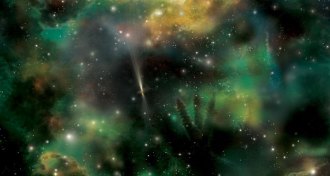 Astronomy
AstronomyAstronomers have measured all the starlight ever emitted
Astronomers used distant blazars to tally up all the stray photons roaming through space.
-
 Health & Medicine
Health & MedicineKids born in August are diagnosed with ADHD more than kids born in September
August-born kids have higher rates of ADHD diagnosis than kids born in September in U.S. states with a September 1 cutoff for starting kindergarten.
-
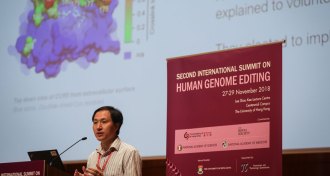 Genetics
GeneticsThe researcher who created CRISPR twins defends his work but fails to quell controversy
After getting a glimpse of data behind the birth of the first gene-edited babies, many scientists question the study’s ethics and medical necessity.
-
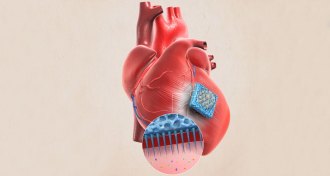 Health & Medicine
Health & MedicineA patch studded with tiny needles may help heart attack survivors recover
A bandage that sticks to the surface of the heart exudes proteins and other molecules that help muscle cells grow.
-
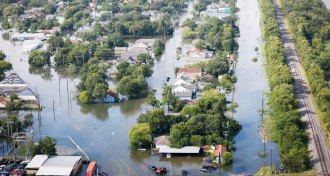 Climate
ClimateHere’s how much climate change could cost the U.S.
A report by hundreds of scientists from 13 federal agencies starkly outlines the economic impacts of climate change on the United States.
By Carolyn Gramling and Laurel Hamers -
 Genetics
GeneticsChinese scientists raise ethical questions with first gene-edited babies
Scientists say gene editing of human embryos isn’t yet safe, and creating babies was unethical.
-
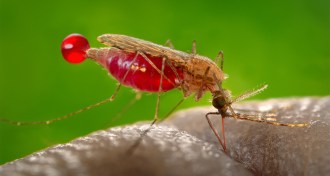 Animals
AnimalsMosquitoes may surf winds above Africa more than we realized
More than 40 meters up, balloon traps in Mali caught females of malaria-spreading mosquito species.
By Susan Milius -
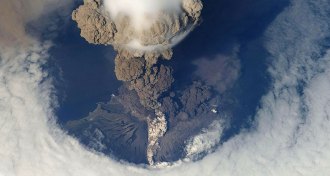 Earth
EarthA new algorithm could help protect planes from damaging volcanic ash
A computer program that tracks the temperature and height of clouds in the atmosphere could keep planes away from volcanic ash.
-
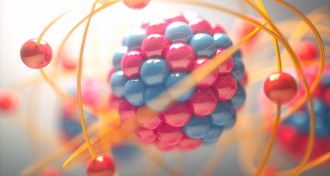 Particle Physics
Particle PhysicsPhysicists finally calculated where the proton’s mass comes from
New study indicates that the proton is much more than just the sum of its parts.
-
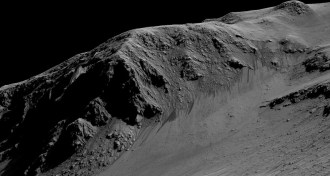 Planetary Science
Planetary ScienceAn orbiter glitch may mean some signs of liquid water on Mars aren’t real
The way that scientists process data from a Mars orbiter creates what look like signs of saltwater, but may actually be nothing, a study finds.